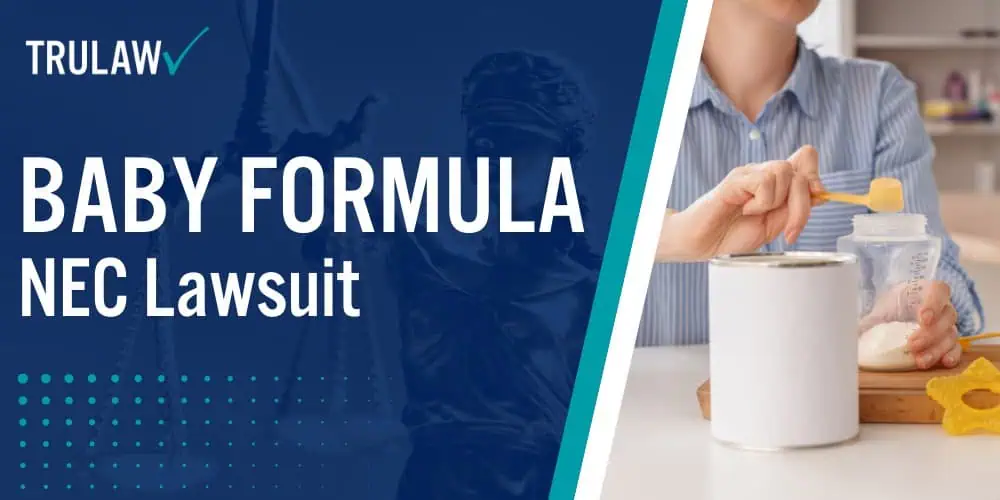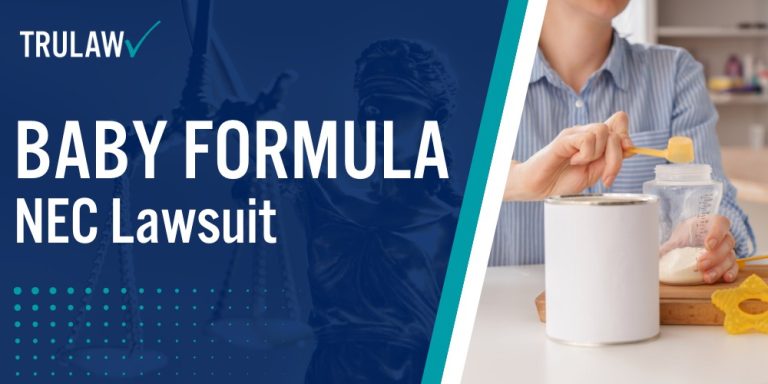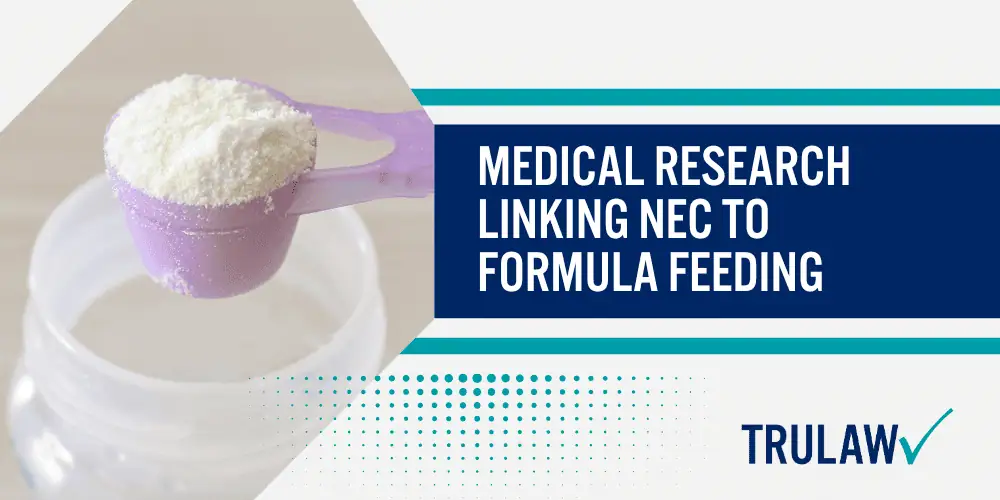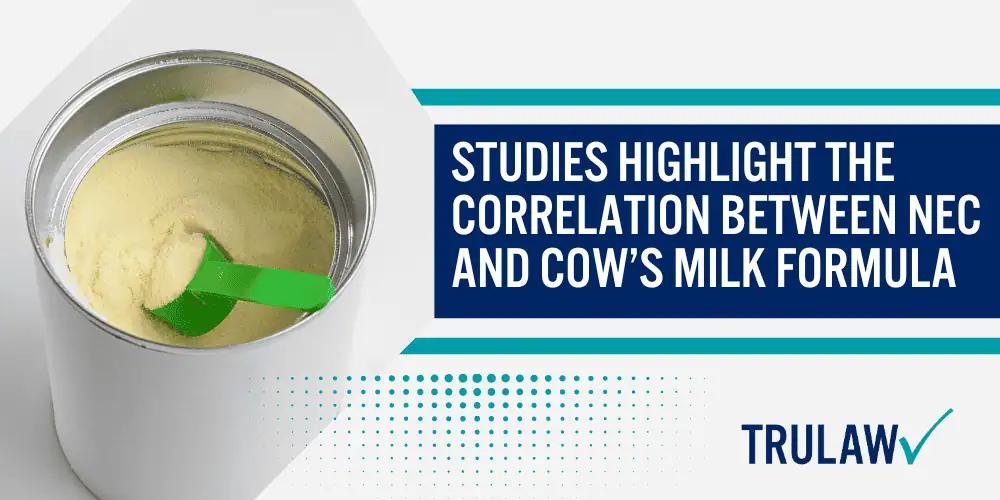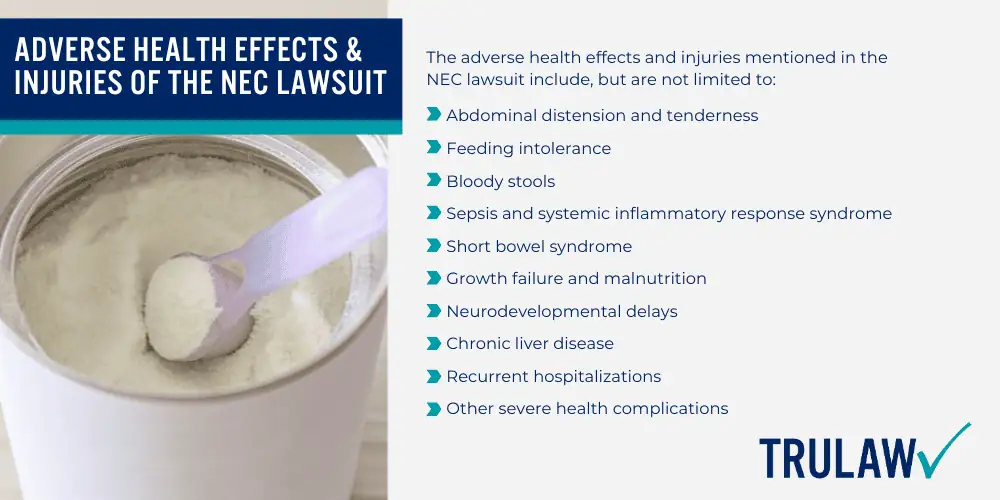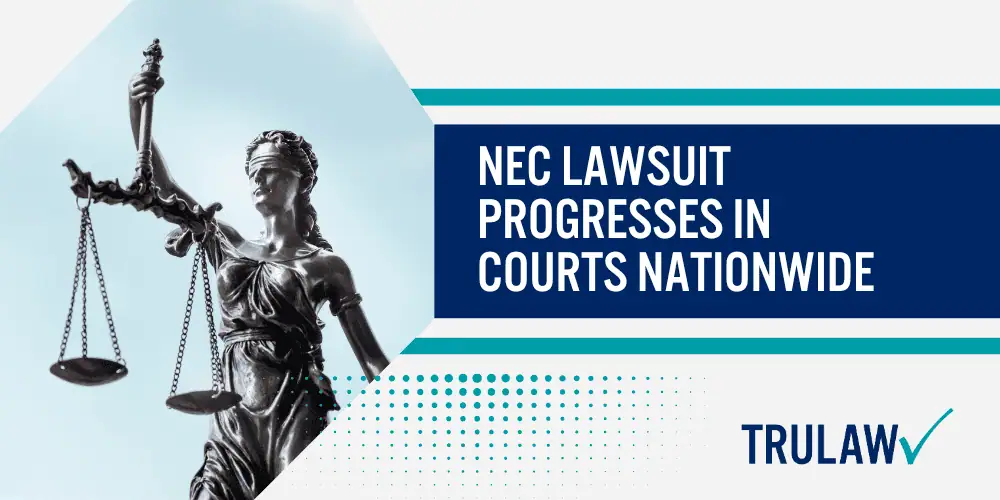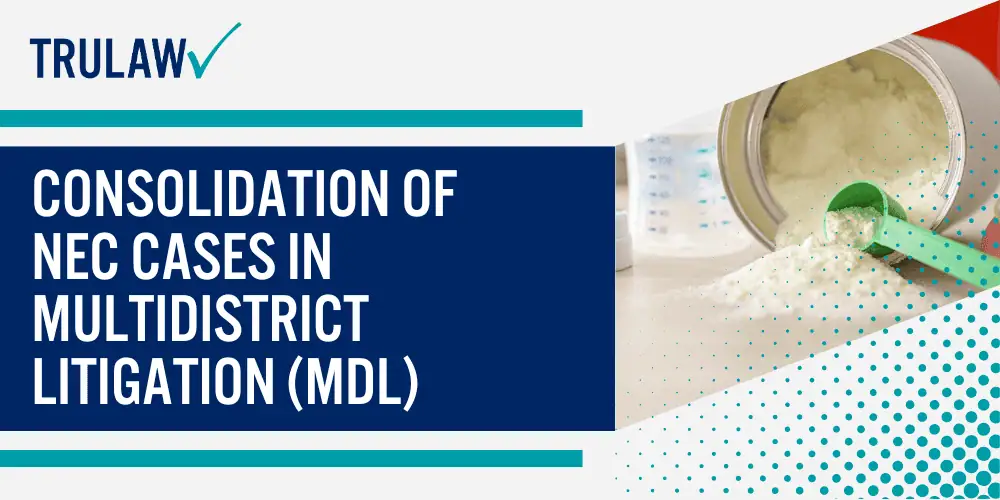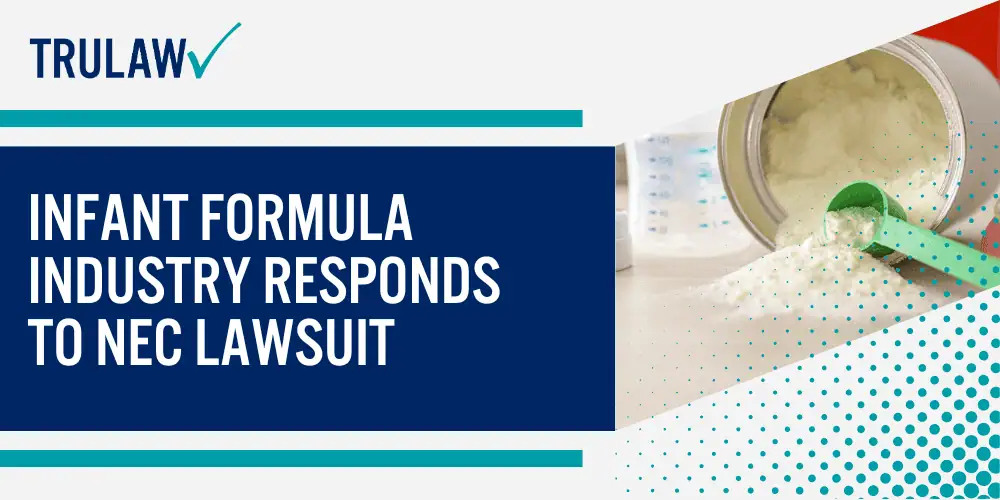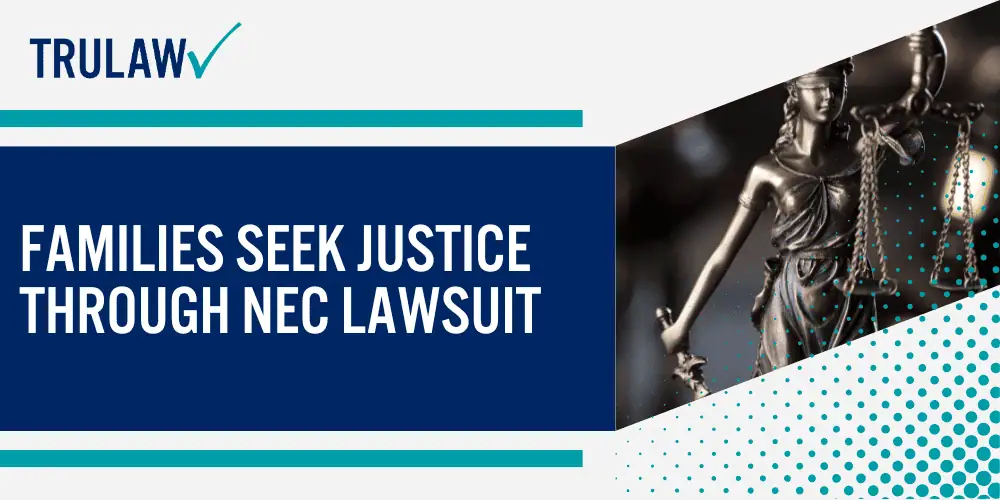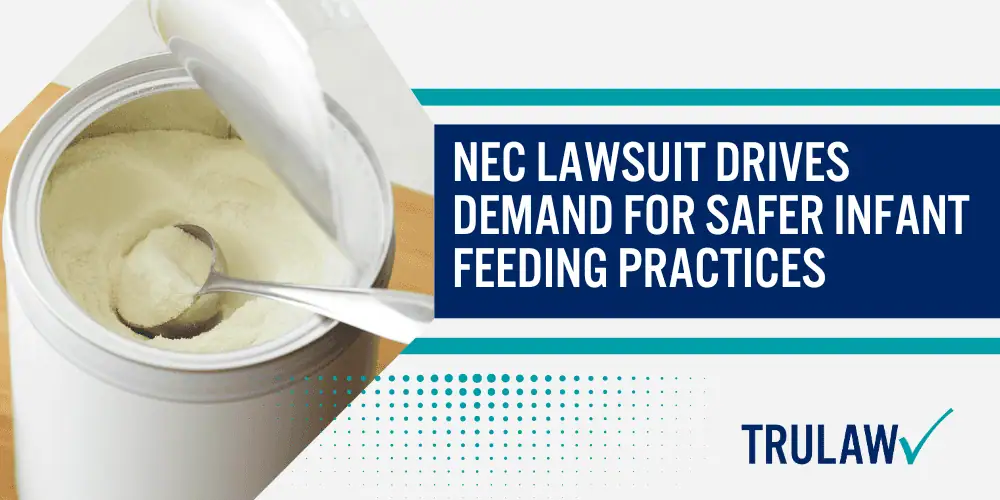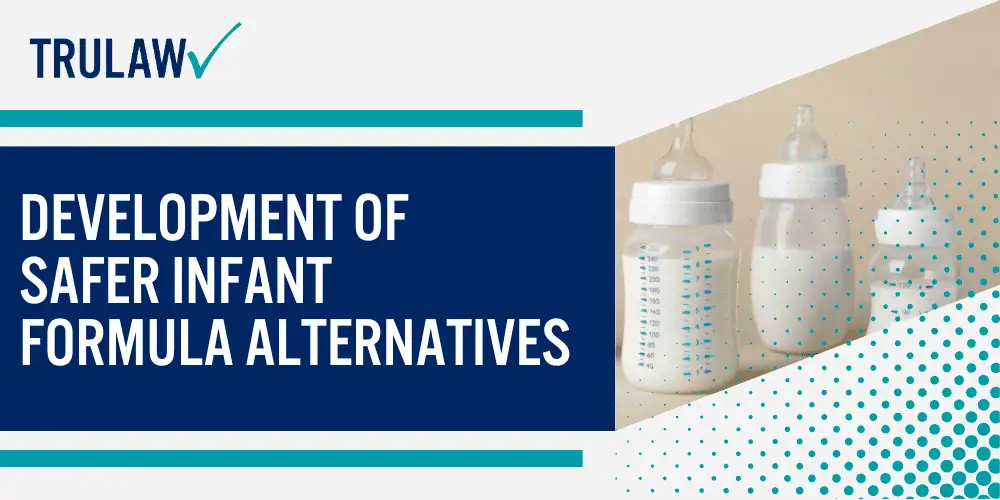The NEC baby formula lawsuits involve legal claims against companies producing cow milk-based formulas, which have been linked to the increased risk of NEC in premature baby infants.
Despite scientific evidence and knowledge of this risk, baby formula makers such as Abbott Laboratories (Similac) and Mead Johnson & Company (Enfamil) continued to market their products aggressively, particularly in neonatal intensive care units (NICUs) and to parents of low birth weight infants.
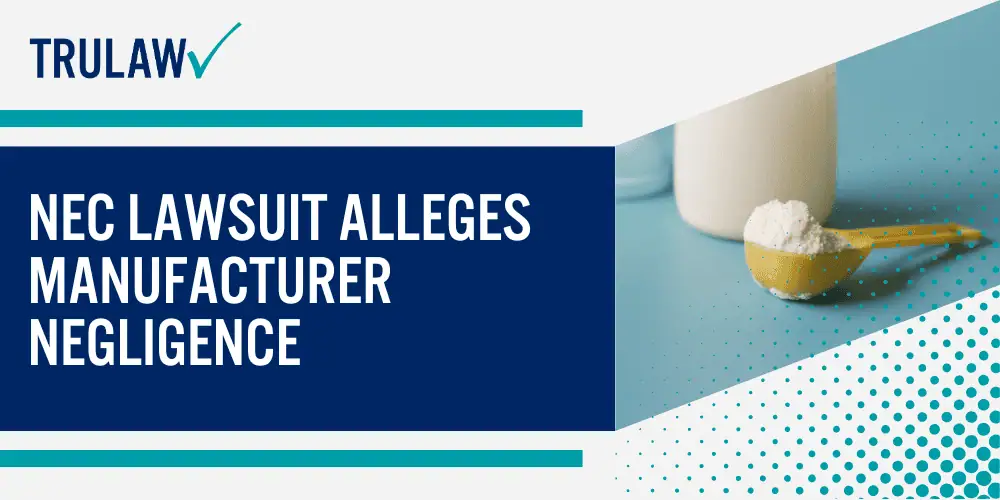
The plaintiffs in these cases argue that these companies failed to provide adequate warnings about the dangers associated with their products, leading to severe health complications for affected infants.
Product Liability Claims Against Infant Formula Makers
The NEC infant formula lawsuits also include product liability claims, which allege that the baby formula manufacturers are responsible for producing and selling products that are inherently dangerous to a vulnerable population—low birth weight babies.
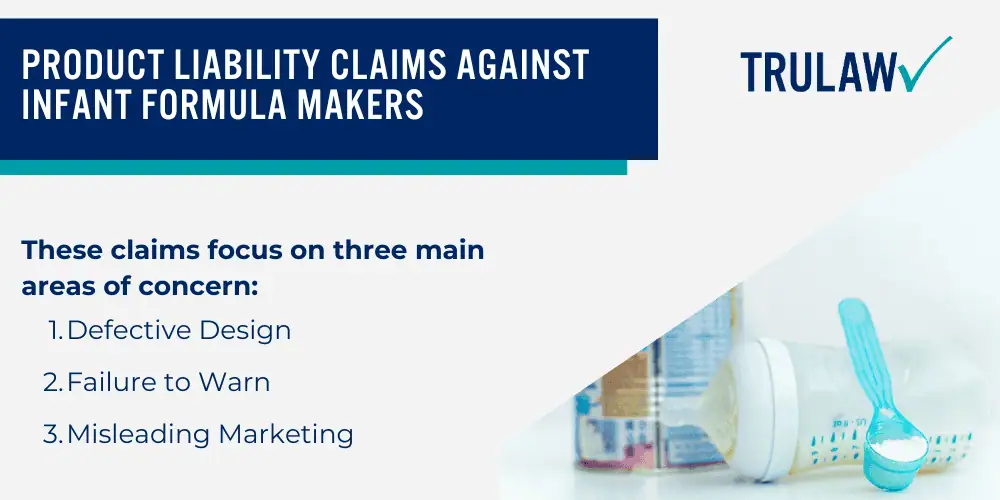
These claims focus on three main areas of concern:
- Defective Design: The plaintiffs allege that the cow’s milk-based formula was defectively designed, making them unsafe for premature infants.
- Failure to Warn: The lawsuits claim that the manufacturers did not provide sufficient warnings about the risks associated with their products.
- Misleading Marketing: The plaintiffs argue that the manufacturers marketed their products as safe and nutritionally equivalent to human breast milk despite knowing the increased risks of NEC.
These legal actions seek to hold the manufacturers accountable for the harm caused to infants who developed NEC after consuming their products.
Plaintiffs Claim Failure to Warn About NEC Risks
Parents who have filed NEC infant formula litigation against baby formula brands claim that the companies did not sufficiently warn them or healthcare providers about the increased risk of NEC associated with cow milk formula.
These lawsuits assert that the manufacturers were aware—or should have been aware—of the risks but chose not to disclose this information adequately, thereby putting primarily affected premature infants at significant risk.
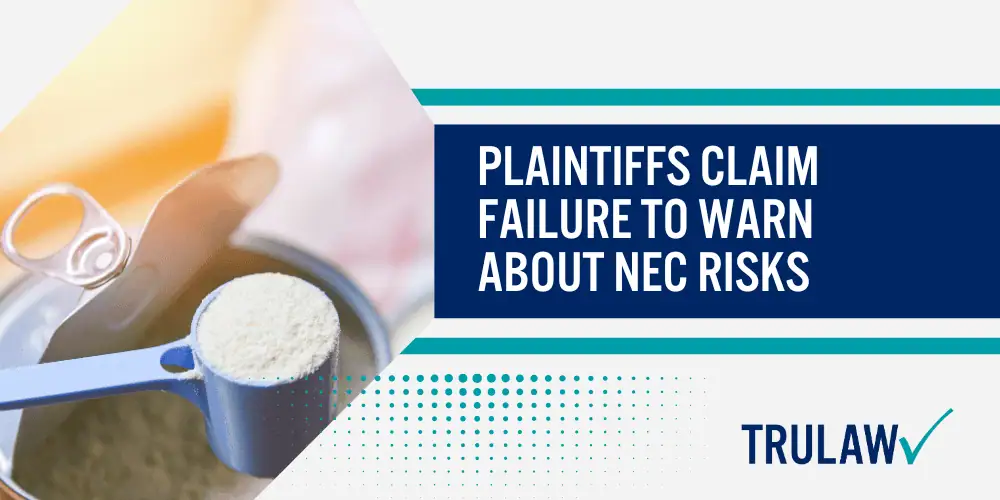
The plaintiffs argue that this failure to warn constitutes negligence and has resulted in devastating health outcomes for their children, including NEC, developmental delays, and other long-term health issues.
